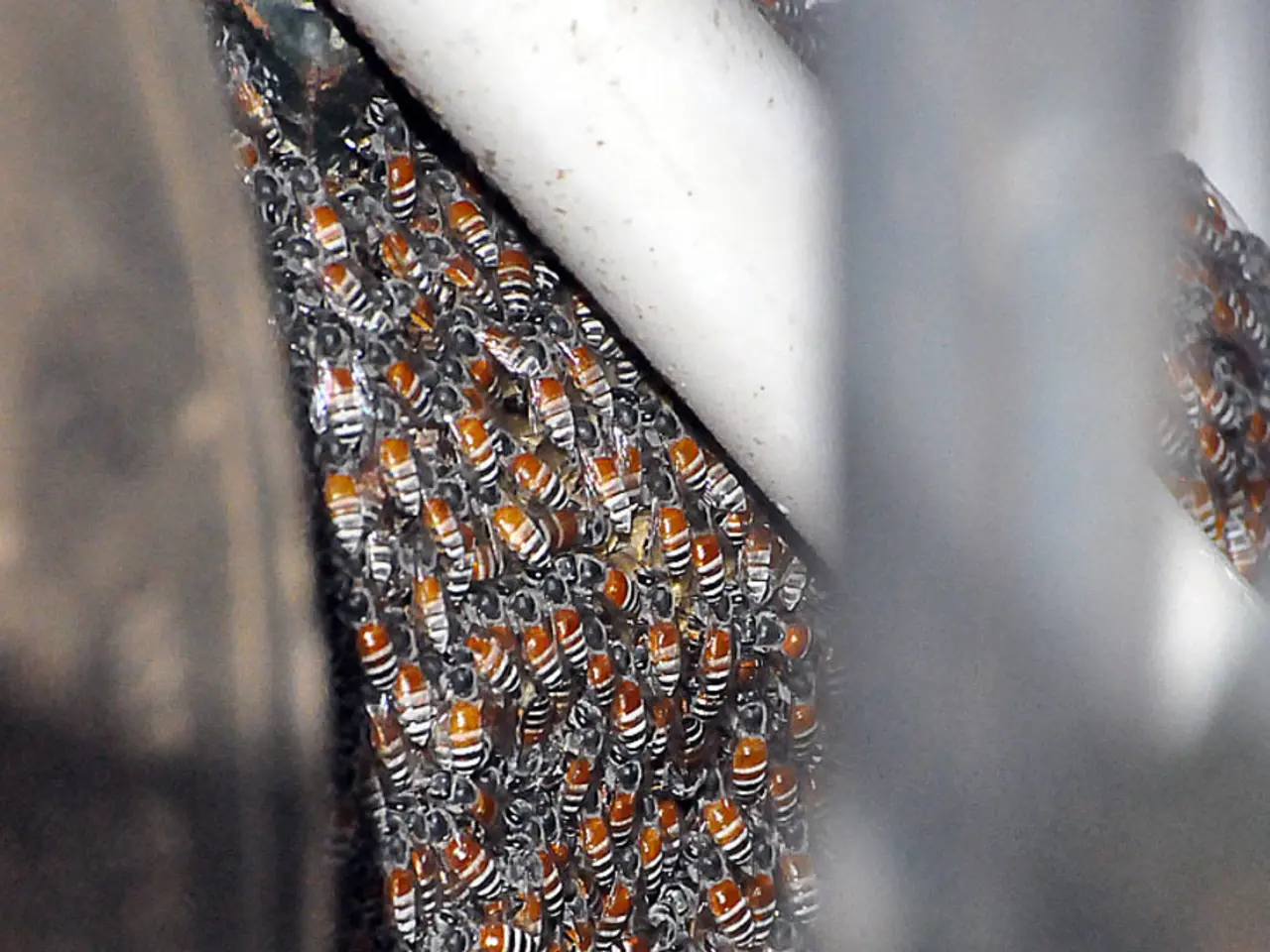Encouraging Honey Consumption Propagated by Beekeepers in Latvian Educational Institutions
In a bid to enhance the nutritional value and local sustainability of school meals, Latvia is considering the integration of honey into its school nutrition program. This initiative, if implemented, would see approximately 100 tonnes of honey per school year being used, which equates to about 5% of current honey production in the country.
The project, dubbed the European Honey Breakfast, is spearheaded by Jānis Kronbergs, the project manager of the European Honey Breakfast project in Latvia. Kronbergs believes that it is feasible to provide honey for all schools in Latvia, and he encourages everyone to believe in this vision.
School caterers are on board with the idea, according to Ilona Dreimane, the Chairwoman of the Association of Caterers in Educational Institutions. Dreimane states that including honey in school lunches would not make them more expensive. In fact, adding a slice of rye bread with honey to school desserts would not be more expensive than another dessert option.
The Latvian Beekeeping Society, led by its Chairman, Valters Brusbārdis, supports the initiative. Brusbārds emphasizes that honey is already on the list of products that should be on school menus. However, he questions why honey is not currently reaching children, despite being on the shopping list for schools.
Beekeeping cooperatives could play a crucial role in this cooperation with school caterers. By sourcing honey locally, the initiative not only promotes Latvian agriculture but also ensures quality and sustainability.
Several potential funding solutions have been proposed:
- Leveraging EU agricultural and school nutrition grants: The European Union supports sustainable agriculture and food programs, which Latvia could tap into to finance honey procurement and distribution in schools.
- Government budget allocation for school meals enhancement: Latvia’s Ministry of Education or Agriculture could earmark specific budgets to include honey as a nutritious supplement in school lunches.
- Public-private partnerships: Collaborating with Latvian honey producers, apiculture associations, and community projects could reduce costs and promote local economic development.
- Nutritional and environmental incentive programs: Aligning the initiative with health and environmental goals (e.g., supporting pollinator health) may attract targeted funds from environmental grants or NGOs.
- Productive alliances model: Learning from international successes, such as alliances supporting smallholder farmers to boost production and incomes, could be adapted to support Latvian beekeepers and integrate their products into public food programs.
A clear funding roadmap involving EU subsidies, governmental support, and cooperative frameworks will be essential to operationalize the initiative effectively.
Kronbergs also highlights the importance of education and understanding about the good qualities of honey in promoting its inclusion in school meals. Brusbārds suggests that a discussion with the municipality representative may provide insight into why honey is not currently being served to children.
Currently, Latvian beekeepers are exporting the amount of honey needed for the project. If successful, this initiative would not only benefit the nutritional needs of school children but also contribute to the local economy and sustainability. For every child in Latvia to taste a spoonful of honey in school once a week would cost approximately 1 cent a day.
- Jānis Kronbergs, the project manager of the European Honey Breakfast project in Latvia, believes that it is feasible to provide honey for all schools in Latvia, and he encourages everyone to believe in this vision.
- School caterers, represented by Ilona Dreimane, the Chairwoman of the Association of Caterers in Educational Institutions, are on board with the idea of including honey in school lunches, stating that it would not make them more expensive.
- The Latvian Beekeeping Society, led by its Chairman, Valters Brusbārdis, supports the initiative and questions why honey is not currently reaching children, despite being on the shopping list for schools.
- Beekeeping cooperatives could play a crucial role in this cooperation with school caterers, as sourcing honey locally would not only promote Latvian agriculture but also ensure quality and sustainability.
- Kronbergs also emphasizes the importance of education and understanding about the good qualities of honey in promoting its inclusion in school meals, and suggests that a discussion with the municipality representative may provide insight into why honey is not currently being served to children.




